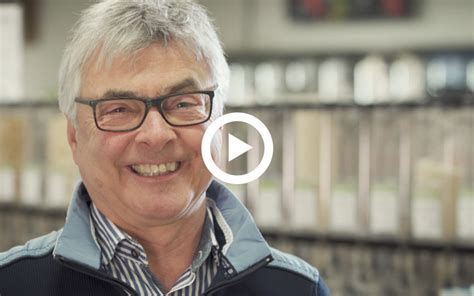In a world where mindful living is gaining momentum, applying its principles to our automotive choices can lead to transformative changes. “Unlock the Miracle of Mindfulness: Transforming Automotive Choices for Sustainable, Thoughtful Consumption” delves into the essence of mindfulness and its profound impact on how we approach vehicle and automotive product decisions. This article explores how embracing mindfulness can foster more sustainable and intentional consumption practices in the automotive world. By understanding the environmental impacts, benefits, and strategies for mindful automotive decisions, we can align our choices with a purposeful lifestyle. Join us on a journey to discover how mindful consumption can redefine our automotive experiences and contribute to a more sustainable future.
lealhotel.com will provide a detailed exploration of this topic.
1. Understanding Mindfulness: Definition and Principles
Mindfulness, at its core, is the practice of being fully present and engaged in the moment without judgment. Originating from ancient contemplative traditions, it has evolved into a widely recognized approach to enhancing well-being and mental clarity. The essence of mindfulness lies in cultivating a heightened awareness of our thoughts, emotions, and surroundings, allowing us to respond to life’s experiences with intentionality and calm.
The principles of mindfulness include non-reactivity, acceptance, and non-attachment. Non-reactivity involves observing our thoughts and feelings without being overwhelmed or driven by them. Acceptance means embracing our experiences as they are, without trying to alter or deny them. Non-attachment encourages us to let go of our habitual clinging to outcomes or material possessions, fostering a sense of inner freedom and balance.
Incorporating mindfulness into daily life can profoundly impact our decision-making processes. It helps us become more conscious of our choices, promoting a deeper understanding of our needs and values. By applying these principles to various aspects of life, including our consumption habits, we can cultivate a more thoughtful, sustainable approach. This awareness not only enriches our personal experiences but also guides us toward making choices that align with a more purposeful and harmonious way of living.

2. The Importance of Mindfulness in Modern Life
In modern life, the demands of a fast-paced, interconnected world often lead to stress and distraction, making mindfulness more crucial than ever. This practice offers a powerful antidote to the constant hustle and noise that can overwhelm our mental and emotional well-being. By fostering present-moment awareness, mindfulness helps individuals navigate daily challenges with greater clarity and composure.
Incorporating mindfulness into our lives can enhance overall well-being, improve focus, and reduce anxiety. It encourages a balanced approach to life’s pressures, promoting a deeper connection with ourselves and our surroundings. In an era of information overload and rapid change, mindfulness provides a foundation for making thoughtful and intentional decisions.
Additionally, mindfulness fosters a greater understanding of our values and priorities, which can influence various aspects of life, including consumption habits. By being more present and aware, we can make more conscious choices that align with our long-term goals and values. This alignment not only contributes to personal satisfaction but also supports a more sustainable and meaningful way of living, addressing both individual needs and broader societal concerns.

3. Mindful Consumption: What It Means in the Automotive Context
Mindful consumption in the automotive context involves making deliberate and thoughtful choices regarding vehicles and related products, with a focus on sustainability and purpose. This approach integrates the principles of mindfulness into our decision-making process, encouraging us to consider not only our immediate needs but also the long-term impact of our choices on the environment and society.
In practical terms, mindful automotive consumption means evaluating the environmental footprint of different vehicles, from fuel efficiency to emissions. It involves choosing cars that align with eco-friendly standards, such as electric or hybrid vehicles, which contribute to reducing our carbon footprint. Additionally, it encompasses considering the life cycle of automotive products, including their production, use, and disposal.
Mindful consumption also extends to being thoughtful about automotive practices, such as regular maintenance to extend vehicle lifespan and reduce waste. It involves supporting companies that prioritize sustainable practices and transparency in their operations.
By adopting a mindful approach to automotive choices, we not only contribute to environmental conservation but also enhance our overall driving experience. This alignment with mindful principles encourages a more conscious engagement with the automotive world, leading to decisions that reflect both personal values and a commitment to a more sustainable future.

4. Environmental Impact of Automotive Choices
The environmental impact of automotive choices is significant and multifaceted, influencing various aspects of our planet’s health. Traditional internal combustion engine vehicles contribute notably to air pollution and greenhouse gas emissions, which exacerbate climate change and degrade air quality. These emissions, primarily carbon dioxide and nitrogen oxides, contribute to global warming and can have harmful effects on human health and ecosystems.
Additionally, the production and disposal of vehicles involve substantial resource use and waste generation. Extracting raw materials, manufacturing vehicle components, and disposing of old vehicles all have environmental consequences. For example, the mining of metals and minerals for vehicle production can lead to habitat destruction and soil contamination.
Conversely, choosing more sustainable automotive options, such as electric or hybrid vehicles, can mitigate these impacts. These alternatives typically have lower emissions and can be powered by renewable energy sources, reducing their overall environmental footprint. Moreover, advancements in vehicle design and materials aim to enhance fuel efficiency and minimize waste.
By understanding and considering the environmental impact of our automotive choices, we can make more informed decisions that contribute to a healthier planet and a more sustainable future.

5. Benefits of Mindful Automotive Consumption
Adopting mindful automotive consumption offers numerous benefits that extend beyond personal convenience to encompass broader environmental and societal advantages. Firstly, it promotes environmental sustainability by encouraging the use of vehicles that are energy-efficient and have lower emissions. This reduces our carbon footprint and helps combat climate change, leading to cleaner air and a healthier planet.
Mindful consumption also supports long-term financial savings. By choosing vehicles that are more fuel-efficient or require less maintenance, individuals can reduce their overall expenditure on fuel and repairs. Additionally, investing in high-quality, durable vehicles can lead to fewer replacements and lower long-term costs.
Another benefit is the enhancement of personal satisfaction and well-being. Making thoughtful, intentional choices that align with one’s values can lead to a greater sense of fulfillment and purpose. It also fosters a deeper connection to the impact of our consumption habits on the environment and society.
Moreover, supporting companies and products that prioritize sustainability encourages positive industry shifts towards more eco-friendly practices. This collective movement can drive innovation and set new standards for automotive manufacturing, benefiting both consumers and the environment.

6. Strategies for Making Sustainable Automotive Decisions
Making sustainable automotive decisions involves several strategies that prioritize environmental responsibility and efficiency.
First, consider opting for electric or hybrid vehicles, which produce fewer emissions compared to traditional internal combustion engine cars. These alternatives are increasingly accessible and can significantly reduce your carbon footprint.
Second, evaluate the fuel efficiency of vehicles. High-mileage cars consume less fuel and emit fewer pollutants, making them a more eco-friendly choice. Look for vehicles with high fuel economy ratings or those designed with advanced fuel-saving technologies.
Third, support companies committed to sustainable practices. Research and choose manufacturers that prioritize eco-friendly materials, energy-efficient production processes, and transparent environmental policies.
Fourth, extend the lifespan of your current vehicle through regular maintenance. Proper care can improve fuel efficiency and reduce the need for premature replacements, minimizing waste and resource consumption.
Fifth, consider car-sharing or public transportation options. Reducing the number of vehicles on the road lessens overall environmental impact and can be a practical choice for those who do not require a car for daily use.
By integrating these strategies into your automotive decisions, you contribute to a more sustainable future while aligning your choices with a mindful and environmentally conscious lifestyle.

7. The Role of Technology in Promoting Mindful Automotive Choices
Technology plays a crucial role in advancing mindful automotive choices by offering innovative solutions that enhance sustainability and efficiency. One of the most impactful technologies is the development of electric and hybrid powertrains. These advancements significantly reduce greenhouse gas emissions and reliance on fossil fuels, making it easier for consumers to choose environmentally friendly vehicles.
Additionally, advancements in telematics and connectivity enable smarter driving behaviors. Technologies such as real-time traffic monitoring and route optimization can reduce fuel consumption by helping drivers avoid congestion and select the most efficient routes. This not only conserves fuel but also minimizes emissions.
Vehicle design has also benefited from technological progress, with manufacturers increasingly using sustainable materials and eco-friendly production methods. Innovations in lightweight materials and energy-efficient components contribute to lower fuel consumption and reduced environmental impact.
Furthermore, technology supports mindful consumption through enhanced vehicle diagnostics and maintenance tracking. Smart systems that monitor vehicle health can alert drivers to potential issues before they lead to significant problems, ensuring vehicles operate efficiently and have a longer lifespan.
Lastly, technology facilitates informed decision-making through digital platforms that provide comprehensive information on vehicle efficiency, environmental impact, and manufacturer sustainability practices. By leveraging these technological tools, consumers can make more educated and conscious choices that align with their values and contribute to a sustainable future.

8. Case Studies: Successful Mindful Automotive Practices
Several case studies highlight successful mindful automotive practices that exemplify sustainability and thoughtful consumption. One notable example is Tesla, a leader in electric vehicles (EVs). Tesla’s commitment to reducing emissions and advancing battery technology has set new standards in the automotive industry. Their widespread adoption of electric powertrains demonstrates how technology can drive environmental benefits and reshape consumer choices.
Another example is the Toyota Prius, one of the pioneering hybrid vehicles. Its introduction marked a significant shift towards combining electric and gasoline power, improving fuel efficiency and lowering emissions. The Prius has become a symbol of mindful consumption, influencing other manufacturers to develop similar hybrid technologies.
Additionally, companies like BMW have invested in sustainable manufacturing practices. BMW’s use of recycled materials and their focus on reducing waste in production processes highlight how mindful practices can extend beyond the vehicle itself to the entire lifecycle of automotive products.
These case studies illustrate how integrating technology and sustainable practices can lead to impactful changes in the automotive industry, promoting more mindful and responsible consumption.

9. Challenges and Solutions in Implementing Mindful Consumption
Implementing mindful consumption in the automotive sector presents several challenges, primarily related to cost, availability, and consumer awareness. One major challenge is the higher upfront cost of sustainable vehicles, such as electric or hybrid cars, which can deter some buyers despite long-term savings on fuel and maintenance.
Another challenge is the limited availability of charging infrastructure for electric vehicles, which can impact their practicality for some consumers. Additionally, there is a need for greater consumer education on the benefits of mindful automotive choices and the importance of sustainability.
Solutions to these challenges include government incentives and subsidies to make sustainable vehicles more affordable and accessible. Expanding charging infrastructure and offering public-private partnerships can address accessibility issues. Increasing consumer awareness through educational campaigns and transparent information about the environmental benefits of mindful consumption can help drive informed decisions. By addressing these challenges with targeted solutions, the adoption of mindful automotive practices can become more widespread and effective.

10. Future Trends in Mindful Automotive Consumption
The future of mindful automotive consumption is poised for significant transformation, driven by advancements in technology and evolving consumer values. One prominent trend is the increasing shift towards electric and autonomous vehicles. As battery technology improves and charging infrastructure expands, electric vehicles (EVs) are becoming more accessible and practical, further supporting sustainable choices. Additionally, the development of autonomous driving technology is expected to enhance efficiency and reduce emissions through optimized driving patterns and reduced congestion.
Another emerging trend is the integration of circular economy principles within the automotive industry. Manufacturers are focusing on designing vehicles with recyclable materials and implementing take-back programs to minimize waste. This approach supports a more sustainable lifecycle for automotive products.
Furthermore, advancements in smart technology and connectivity will play a crucial role in promoting mindful consumption. Real-time data on vehicle performance and environmental impact will enable consumers to make more informed decisions and adopt eco-friendly driving habits.
Consumer demand for transparency and corporate responsibility is also expected to drive change. Companies will increasingly need to demonstrate their commitment to sustainability and ethical practices to meet evolving consumer expectations.
Overall, these trends reflect a growing commitment to mindful consumption and a more sustain

Embracing mindful automotive consumption is essential for fostering sustainability and making informed choices that align with a purposeful lifestyle. By understanding the principles of mindfulness, evaluating the environmental impact of our decisions, and leveraging technology, we can contribute to a greener future. Adopting these practices not only benefits the environment but also enhances our personal fulfillment and well-being.
lealhotel.com